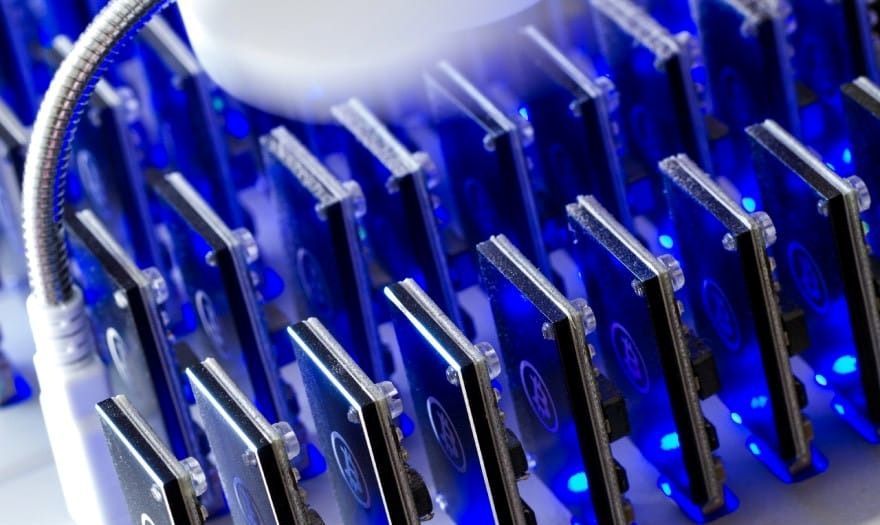How Lottery Style Mining Actually Works
Lately, I’ve been experimenting with something called lottery mining, a type of crypto mining that is more about luck than raw power. You might already know how normal mining works: you join a pool, combine your hashpower with thousands of others, and slowly earn a share of rewards. It’s steady, predictable, and honestly, a bit boring.
Lottery mining is different. You mine solo. If your miner finds a block, you get the entire reward. If it doesn’t, you get nothing. It’s all or nothing, just like buying a lottery ticket.
What Is Lottery Mining?
The name gives it away. Every hash your miner calculates is basically a ticket in a massive digital lottery. You could mine for weeks without hitting a block, or one lucky hash could win the jackpot.
Each block is like a winning number. If your miner guesses correctly, you take home the full prize, no splitting, no middlemen.
Most miners prefer joining pools because it smooths out earnings. You get smaller payments more frequently. In lottery mining, you trade consistency for possibility. You could go months with nothing or wake up one morning to find a full Bitcoin block reward. That’s the gamble.

How It Works in Practice
Here’s what it looks like when you run a lottery miner:
- Pick your hardware. Lottery miners are usually small and low-power. Older Bitcoin USB miners, like the Solo-V2 or LV03, run at around 74–78 KH/s. Newer models like the LV07 reach about 1 TH/s, and the more powerful LV08 goes up to 4.5 TH/s.
- Connect it directly to the network. You mine solo, no pool and no shared payouts.
- Start hashing. Each hash is a small chance to solve the next block. The more powerful the miner, the faster it generates hashes, but even the fastest lottery miners are tiny compared to the global network.
- Hit or miss. If your miner finds the block first, you get the full reward. If not, it keeps trying.
The total network hash rate is enormous. Bitcoin alone is measured in exahashes per second, so even a 1 TH/s miner is a drop in the ocean. That’s what makes it fun. The outcome is purely random, and every block solved feels like a personal win.
Why I’m Doing It
I’m not doing this to get rich quickly. I’m doing it for curiosity and learning. Lottery mining feels more personal than pool mining. It’s just me, my miner, and a small chance at something big.
Here’s what I enjoy most:
- It’s exciting. Every time I check my miner, there’s that tiny “what if” moment.
- It’s educational. You learn about hash rates, block times, and how decentralized networks function.
- It’s affordable. You can start with cheap hardware that barely uses electricity.
- It’s personal. Every hash you generate is yours alone.
What I’ve Learned So Far
The first night I ran my miner, nothing happened. No blocks, no payout. But seeing it work, checking the stats, and knowing I’m contributing to the Bitcoin network felt good.
After a few nights, I realized lottery mining is more about patience than tech. You’re not chasing quick profits; you’re testing probability.
Some things I’ve learned:
- Make sure your internet connection is stable. Every second offline is a missed chance.
- Be realistic. The odds of hitting a block are tiny, but that’s what makes it exciting.
It’s not about earning every day. It’s about the process, the randomness, and the small spark of hope that maybe today is the day.
Should You Try It?
If you want guaranteed profit, this isn’t for you. Lottery mining is unpredictable and slow. But if you enjoy experimenting, learning about crypto, and don’t mind a bit of waiting, it’s a lot of fun.
Think of it like fishing. You set up your gear, wait quietly, and sometimes you catch something big. Other times, you just enjoy the process.
My Plans Ahead
I’ll keep running my miner, track everything, and see how it performs over the long term. If I ever hit a block, you’ll hear about it here first. If not, that’s fine too, it’s all part of the experiment
Lottery mining isn’t for everyone. It’s slow, uncertain, and requires patience. But it reminds me of what crypto is really about, ordinary people participating in a global, decentralized network.
Whether I ever hit a block or not, I’m part of something always running, always live, and entirely built on code and curiosity. That in itself is pretty amazing.
You can follow my mining updates and experiments on X/Twitter